Misunderstanding of 'Tencent File Assistant', far from the truth
![]() 08/12 2024
08/12 2024
![]() 493
493
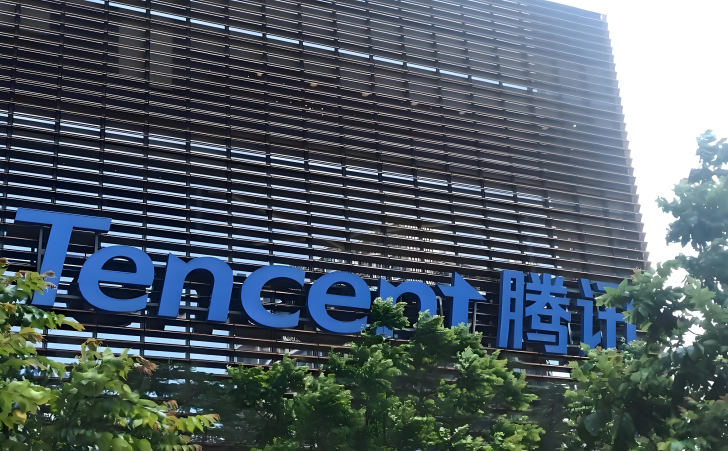
This 'assistant' is not that 'assistant'
Written by Chen Dengxin
Edited by Li Ji
Typeset by Annalee
As a bellwether of the internet, every move Tencent makes attracts considerable attention.
Recently, 'Tencent File Assistant' announced that its mini-program and web version will cease operations from October 11, 2024, urging users to save their backed-up documents as soon as possible.
Originally, this was just a normal business adjustment announcement.
However, it was misinterpreted by some who mistook it for Tencent's 'File Transfer Assistant' or 'Tencent Docs' shutting down, causing much confusion.
'Tencent Docs', 'Tencent File Assistant', and WeChat's 'File Transfer Assistant' - which is which? What is the relationship between these three, and why is Tencent closing down 'Tencent File Assistant'?
This 'assistant' is not that 'assistant'
'Tencent File Assistant' has reached the end of its life.
The official statement reads: 'For affected premium users, we have opened a refund channel. You can access it via the Sync Assistant App → Files → Shared Space → Click on the announcement → Refund Channel to fill in your account information for a refund. We will verify the submitted information and process your refund as soon as possible.'
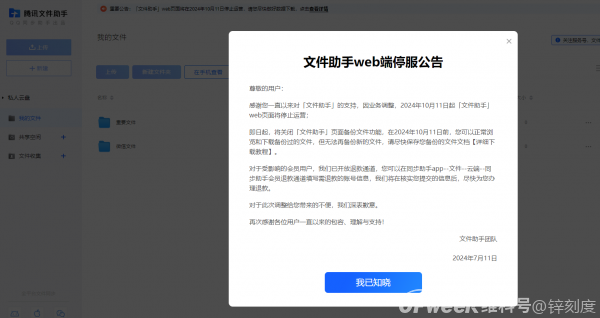
From the above, it is evident that 'Tencent File Assistant' has a close relationship with 'QQ Sync Assistant'.
'QQ Sync Assistant' is a mobile data backup management tool that bridges the natural divide between iOS and Android and offers additional features such as ID photo taking, format conversion, and document scanning.
Meanwhile, 'Tencent File Assistant' is an independent mini-program tool developed by the 'QQ Sync Assistant' team. Its main functions include assisting with contact sharing, file backup, and homework collection within 'QQ Sync Assistant', but it does not include file transfer, third-party browsing, or downloading capabilities.
In simpler terms, 'Tencent File Assistant' is the mini-program version of 'QQ Sync Assistant'.
It's important to note that due to the differences in product characteristics between apps and mini-programs, their functionalities are not identical, with 'QQ Sync Assistant' generally offering more comprehensive features.
Thus, the positioning of 'Tencent File Assistant' is focused on file management.
However, WeChat's 'File Transfer Assistant' is more familiar to users, and the similarity in names has led to confusion.
WeChat's 'File Transfer Assistant' addresses the pain point of cross-platform file sharing within WeChat, enabling the transfer of various files, WeChat official account articles, and website links, making it a useful tool for users across various scenarios such as offline printing shops, meeting notes, public computer data transfers, and private drafts.
In fact, this is not the first time WeChat's 'File Transfer Assistant' has been misinterpreted.
Previously, rumors circulated that the 'File Transfer Assistant' could be impersonated to spy on others' private information, and even now, some people claim that by changing their profile picture and nickname, they receive strange messages daily.
Zinc Carving's tests found that individual WeChat accounts cannot be renamed to similar names, even with typos, and more crucially, specific profile pictures cannot be replaced.
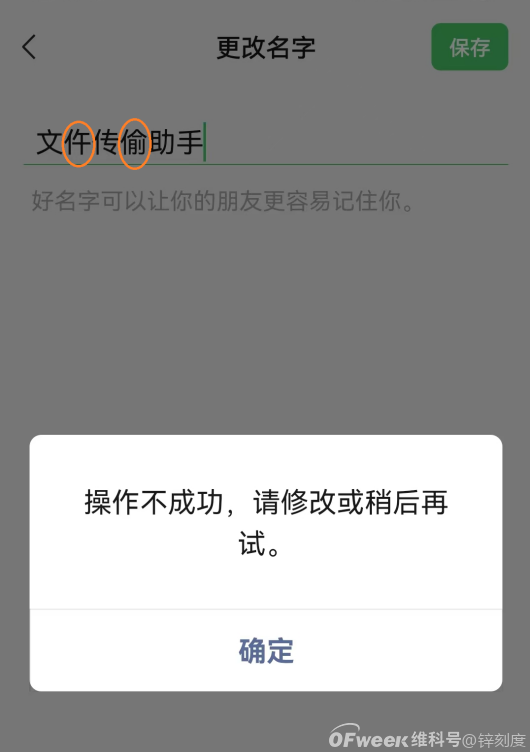
Not the same species as 'Tencent Docs'
Even more absurdly, some equate 'Tencent File Assistant' with 'Tencent Docs.' While their names are somewhat similar, they are fundamentally different products.
To understand their differences, we must delve into the evolution of office platforms.
Early on, constrained by communication technology, local offices held a dominant position, with online offices relying primarily on email, MSN, QQ, and other tools, limiting efficiency enhancements.
It wasn't until 2006, when Amazon ventured into cloud computing, that online offices gained momentum.
Cloud computing falls under the B2B category, catering to enterprises, institutions, and organizations by providing scenario-based precision application services, high-speed processing of massive business data, and low-cost, reliable IT infrastructure.
This enabled the popularization of remote collaboration, online meetings, file sharing, and enterprise office functionalities.
An internet observer told Zinc Carving, 'SaaS (Software as a Service) offers lower costs and higher efficiency, bringing online offices from ideal to reality, breaking free from time and space constraints, and gradually becoming an industry consensus.'
The same observer further explained that in implementing online offices, a critical challenge emerged: how to enable multiple users to simultaneously view and edit Word, Excel, PPT, and other documents while sharing data in real-time, achieving the goal of anytime, anywhere access.
This backdrop gave rise to online collaborative offices.
It's essential to understand that collaboration is inherently social, which happens to be Tencent's forte. Thus, 'Tencent Docs,' launched in 2018, has been notable.
Public data shows that Tencent Docs has 200 million monthly active users on the consumer side and 1 million paying users. On the enterprise side, it covers 1.2 million enterprises and organizations, accumulating 20,000 paying enterprises.
It's evident that 'Tencent Docs,' positioned for online collaboration, and 'Tencent File Assistant,' focused on file management, do not overlap in their businesses.
Crucially, 'Tencent Docs' holds a strategic position unattainable by 'Tencent File Assistant,' being viewed alongside WeChat Work and Tencent Meeting as a trifecta and a vital lever in Tencent's SaaS strategy.
Moreover, 'Tencent Docs' not only facilitates collaboration on professional Office documents but also on smart documents, spreadsheets, and whiteboards, achieving scene reach and conversion capabilities.
Yan Xianqing, General Manager of Tencent's Social Collaboration Product Department and Head of Tencent Docs, stated, 'Recently, our self-developed 'Kaiwu Engine' has achieved atomic storage, staying at the forefront of technical solutions and thinking, significantly reducing storage costs for both enterprises and individuals.'
Additionally, 'Tencent Docs' is equipped with an AI assistant, enabling users to generate various documents such as Word, Excel, PPT, and mind maps with a simple command.
For instance, if a user creates a business PPT report, the AI in 'Tencent Docs' can convert it to a Word document with one click, facilitating refinement, polishing, and continuation, significantly enhancing work efficiency.
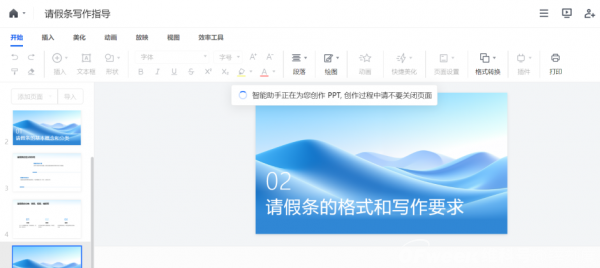
'Decluttering' to Focus on Core Business
It's important to note that shutting down 'Tencent File Assistant' is just one aspect of Tencent's cost reduction and efficiency enhancement strategy.
For a long time, multi-directional expansion and rapid growth have been the primary growth paths for internet giants. However, as internet traffic peaks and the industry evolves, these giants are taking a different path, focusing on their main businesses while reducing expenses to increase efficiency.
Tencent is no exception, with cost reduction and efficiency enhancement as its long-term strategy.
During an internal conference in December 2022, Pony Ma, Chairman of the Board and CEO of Tencent, stated, 'Many non-core businesses should be cut without hesitation. Compared to the management costs and effort Tencent invests, spreading too thin across non-core businesses is not cost-effective. We must continue to strengthen and adhere to cost reduction and efficiency enhancement efforts.'
Thus, 'decluttering' has become a keyword for Tencent.
Looking back, while 'Tencent File Assistant' and 'QQ Sync Assistant' do not have identical functionalities, they have a high degree of overlap, fulfilling most users' needs, making their coexistence unnecessary.
Public data shows that since 2023, Tencent has shut down apps such as Tencent Todo, Penguin FM, QQ Space Vine, WiFi Master, and games like Rules of Survival, Street Basketball, MapleStory 2, KartRider Rush+, and Fairy Tail: Hero's Journey.
In a nutshell, Tencent aims to concentrate resources and efforts on its core businesses.
This is evident from Tencent's Q1 2024 financial report, which shows that the company has reported higher operating profit growth than revenue growth for six consecutive quarters, indicating the quality of its earnings.
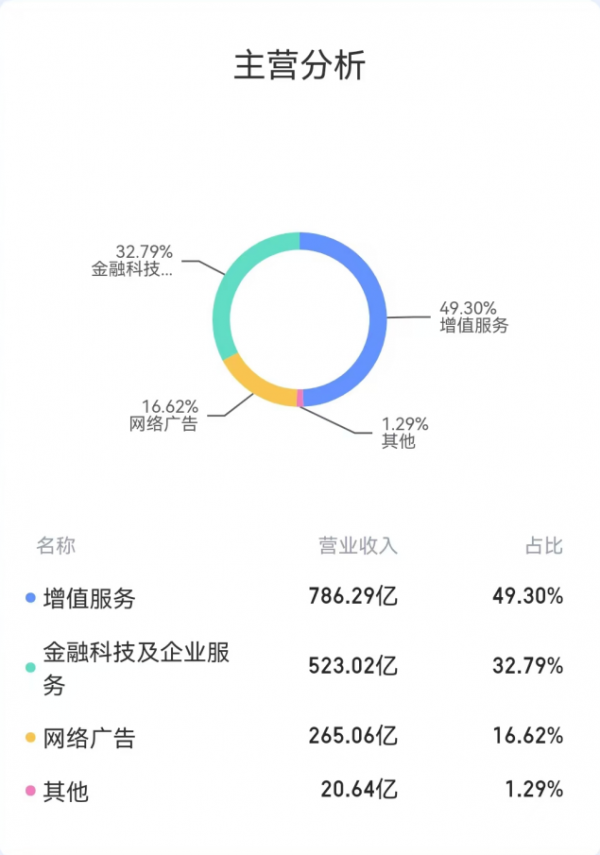
Specifically, within the WeChat ecosystem, the total user engagement time on video accounts has increased by over 80% year-on-year, mini-game revenues have grown by 30%, and mini-program user engagement time has risen by more than 20%, signaling the emergence of new businesses.
Guohai Securities predicts that Tencent's online game revenue is expected to grow by 8% year-on-year in Q2 2024, with overseas games poised for double-digit growth, indicating a solid foundation for Tencent's evergreen games.
From this perspective, the misunderstanding surrounding 'Tencent File Assistant' is but a minor incident. Tencent's cost reduction and efficiency enhancement journey will continue, driving countercyclical and resilient growth amidst internet transformation.
Tencent must continue to strive forward.







